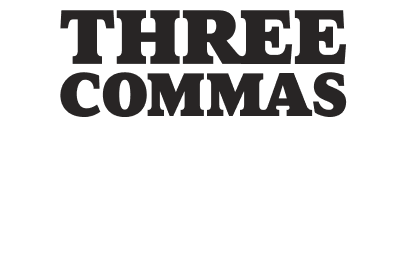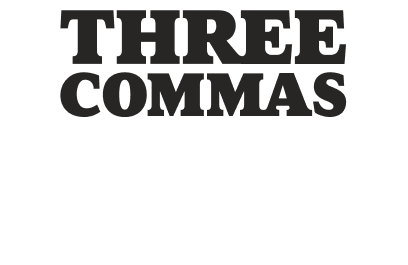Radio, TV, and now the web: it’s really only ever been about delivering audiences to advertisers. Sorry to break it to you – it’s not about how good your favorite show was last night. It never was.
From the early days of radio, the idea – the only idea – was to create programming that fed consumers to advertisers. The sneaky trade off: the networks will give you free programming if only you will pay attention to a few words from our sponsors.
It’s the same story now, but in the digital age, the task is harder than it’s ever been. The mad scramble is on – and deny this as you will, you’re just as gullible as the average radio listener in 1927. Even on the web, in exchange for free, you just have to put up with some increasingly intrusive ads.
Dr. Tim Wu’s book, The Attention Merchants: The Mad Scramble To Get Inside Our Heads, breaks down the history of our manipulation, how they do it, how we fight it, and who wins. 
Tim is a professor at Columbia University Law School and a director of the Pollak Center for the study of First Amendment Issues at Columbia Journalism School. He writes about free speech, private power, copyright, and antitrust. His previous book, The Master Switch, won wide recognition and various awards.
Here, Tim tells us how advertisers are working it so that they have your constant attention. We touch upon the effectiveness of ad blockers, the astonishing success of Facebook (and why they get it right), and exactly how many hours advertisers have to get at you.
RON: Digital advertising reminds me of The Emperor’s New Clothes: everybody is drawn to it and a huge fuss is made over it, but ultimately, it’s a hoax; really doesn’t do anything for anybody.
TIM: At one time, [digital] advertising seemed like manna from heaven, the answer to everything: free money just flows in, and everything on the Web is just going to float and work. No tradeoffs, no problems at all.
But for the readers, there was a very determined resistance not to pay for anything. Part of this was about Web culture: it’s all free, it’s not about money.
RON: So where are we now?
TIM: It seems that we’ve hit the “hangover” moment. The publishers haven’t made much money here and never made much money. If there is any money, Google and Facebook have got it all.
It’s like a lot of things. I don’t want to say it was a bubble, but promises that turned out not to be sustainable. For regular publishers, I don’t think it worked well. On the consumer side, we’ve gotten to this place where advertising really is intrusive. It burns your battery and your cell phone and your time.
I think we’re in a bad place, and that’s why I wrote this book.
RON: The original idea of Web advertising is that advertisers can target their prospects more precisely and accurately than ever before. Hard to argue with that. So what happened?
TIM: What’s absurd is the promise of ad tech versus what it delivers -- the thought that consumers are going to like the ads now because it’s exactly what they wanted.
I don’t really want to blame anyone; I just think we kind of have gotten here somehow. It’s not like the advertisers have an easy time. And it’s not like the publishers want to inflict advertisements on their readers. It’s just kind of where we have gotten to.
I’m not trying to say a big “fuck you” to publishers; the publishers are getting screwed too. And the advertisers are not getting their audiences, so they are acting desperate.
RON: One of the things you recommend in your book: let’s start from scratch. A radical idea, indeed.
Tim: In some ways, it has happened; not totally from scratch, but some non-ad supported models have done really well. One of the reasons I think Netflix took off in the last five years is that, rather than close down 30 [ad] windows, you just watch one show, and then it’s over. There are no ads; it’s very intense and engaging and deep. Even HBO has been like that for a while.
RON: So the conventional wisdom is not exactly correct. People have an attention span after all?
TIM: People like watching 12 hours in a row of [a Netflix offering]. It’s not so much the attention span; it has to do with the way the material is presented. For the web, the medium depends on clicks. It’s actually become a very low-attention-span medium, one that depends on a different metric.
RON: In many ways, digital advertising is really no different from the very first forms of advertising, from over a century ago: a combination of snake oil (miracle cures) and delivering an audience (radio).
TIM: I was fascinated by how much of early advertising was cure-driven: miracle cures. Even when I was growing up, I was taught that you have to drink orange juice, that it’s a miracle beverage. I was raised to believe that if you didn’t have orange juice every day, you could get sick.
RON: Are we any smarter today?
TIM: I don’t think any of that has changed. They say a sucker is born every minute. We’re all suckers. I’m a sucker. That’s part of being human. Who wants to age? Who wants to lose their hair? Who doesn’t want six-pack abs? We want magic potions. And I think that we are not really willing to completely accept that there are no magic potions.
On the other hand, we are better at recognizing the hard sell. We have more of a reflex now. It takes a little bit more subtly to get to us. It’s part of human nature. We really want to believe.
RON: So reinventing the Web…is this do-able? Would everybody be on board for this?
TIM: The Web can reinvent itself the way television did. People thought that television was a write-off, done, expired. Now, television is making a fortune and, in many ways, better than it’s ever been. There is more money being spent on TV content than ever in its history. People who used to make movies make TV shows.
Like anything else, the Web can have another golden age, or something new that comes along. The Web came along in our lifetime, cable TV came along in our lifetime. I’m a believer in rebirth. I like the movie Rocky. Get knocked down, and come back. I’m an optimist, even though I wrote a dark book. I believe in the infinite possibilities of redemption and coming back and starting something new and starting something better.
RON: Any way you slice it, though, it’s harder than ever to get – and keep – people’s attention.
TIM: The attention economy is a tough game to be in. Getting attention for your products is one thing, and that’s hard enough. If you need to be a part of the 168 hours that the population has to pay attention, that’s a tough situation. Think about how comptetive that has become. The biggest companies on [social media] have their own demands for doubling and tripling revenue. They need to capture more and more of that time, over and over and over again.
RON: So then how in the world do the little guys –small business and entrepreneurs – keep up with the major-player attention merchants?
TIM: I think there is a very important fact for entrepreneurs in the current environment: the amount of time people have is finite -- it’s 168 hours. Money is not infinite, but there is a much more dynamic supply of it. I don’t have any panacea for anyone. You’re in an outrageously competitive situation, because other businesses have just jumped into those 168 hours and want to grab every single one of them. Unless you think you can get in there in some way that you think no one else has, you need to realize the game you are playing.
RON: What’s your take on ad blockers? Are they doing their job? Are they sending a message to The Man? Are they the first shots of the revolution?
TIM: Ad blocker are fascinating. I think there is a business opportunity in trying to cater to people who want more control over their own attention. Ad blockers are a part of improving the Web. If you can come up with some way that lets people fight back against having their lives taken over and somehow give them the room they need, I think that’s an important opportunity.
Ad blockers are very frustrating for advertisers, of course, and there is something not sustainable and rather juvenile about it. On the other hand, they are obviously expressing something. They are a symptom of how broken things are. People are so dissatisfied that they are employing their own aggressive techniques.
RON: Which leads us to Facebook. Explain why it succeeded in getting and holding our attention, where so many other social media failed. And even Facebook faces business challenges.
TIM: Facebook is under incredible pressure to increase their revenues. So I think you are going to see them become increasingly aggressive, to the degree that they will try to monetize everything they’ve got.
Their greatest success is that they keep up with the form of media that is all about “you.” Basically, you are watching yourself and how your friends react to you -- it’s just pure narcissism, how people are reacting to you. Facebook understood and captured this in a bottle – what people care about most is themselves.
RON: So where do we go from here?
TIM: More ways of getting inside your head: infiltrate almost every part of your life, and above all, remain essential. Facebook has done an incredible job of making itself essential for births, major life announcements. They somehow have completely woven themselves in. That’s really important to them. The key is: they are just there all the time. Life moments. They are controlling life’s moments and advertising to those moments.
RON: Of course, advertising, no matter what, has to be appealing. No matter how many eyeballs, good advertising makes the pupils dilate.
TIM: The holy grail of advertising for a long time has been advertising that goes down easy. You don’t really notice it. It may be something that you want to watch. Product placement has been around for a long time. There is always going to be an effort to find new ways for [advertising] to be natural and just fit in and not be obtrusive. I think it’s going to become more that way.
We’ve become more sensitive to the fact that we are being advertised to. They are trying to get more and more subtle. If we are talking about the future of advertising, there is no question that it’s going to be about “subtle.” Building things in nice and subtly, not blaring in your face.
We do have ad blocking – people are trying to slam the door on ads whenever they can, like swatting a mosquito. If you have somebody trying hard to swat you, you have to be more microscopic, something that you don’t notice.
You can’t come away from the history of advertising and not feel a little bit humbled. All of us are a little bit gullible. The more you think you’re not, the more you probably are. A lot of us are like, “oh, no, not me. Those are the old days. Advertising doesn’t affect me.”

Click here to find out more about Tim and The Attention Merchants.


